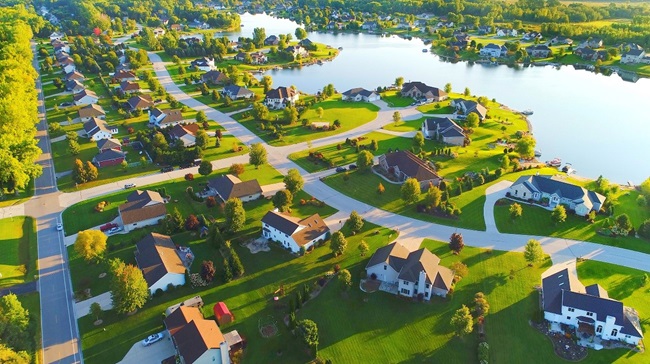Real estate transfer tax in the Netherlands
Have you found your Dutch dream home? Apart from having the buying process concluded properly, it is of particular importance to also comprehend all aspects relating to acquiring the ownership of your new abode. A part of this acquisition process is the payment of transfer tax.<br...
Author: Joep Ertem, LL.M.
As a deputy civil law notary from an internationally oriented firm, Joep provides his clients with advice on a wide range of legal subjects. He specializes in the drawing up of (living) wills and setting up tax plans in order to avoid unnecessary burdens, as well as advising international clients on matters where family law and real estate law overlap. His goal is to create and maintain a bond of trust with his clients, which he considers a necessity to come to the right solution to legal problems.

Real estate transfer tax in the Netherlands
Have you found your Dutch dream home? Apart from having the buying process concluded properly, it is of particular importance to also comprehend all aspects relating to acquiring the ownership of your new abode. A part of this acquisition process is the payment of transfer tax.
Below, a concise overview is provided of what transfer tax exactly means in the Netherlands and how this is levied.
What exactly is transfer tax in the Netherlands?
When you become owner of real estate in the Netherlands, transfer tax will be levied by the Dutch tax authorities over the market value of the real estate that is the object of your purchase. This applies to all kinds of real estate. In other words, transfer tax would not only be levied when acquiring a residential home, but also if you would become owner of a warehouse. The transfer tax should not be confused with the taxes related to the real estate as levied by the municipality, such as the yearly property and sewage taxes.
The notary arranging the ownership transfer of your home will arrange both the filing of the transfer tax return and the payment to the Dutch tax authorities of the due transfer tax, after the deed of transfer has been signed by the parties.
Transfer tax rate in the Netherlands
The tax rate rose from 8 to 10.4 per cent from the 1st of January 2022. In addition, since 2021, there has been a new distinction in the tax rate.
The tax rate is relevant depending on whether the purchaser intends to reside in the private property on a long-term basis (excluding holiday homes or buy-to-let properties) to qualify for the reduced tax rate of 2 per cent or tax exemption for starters between 18 and 35 years old. If not, the general transfer tax rate of 10.4 per cent will be applicable. Prior to 2021, the sole qualification was whether the property could function as a private residence to be eligible for the lower tax rate of 2 per cent.
Qualification as “starter”
Are you acquiring a property in which you will live yourself for a longer period of time? As mentioned above, you may be able to get a starter exemption for the Dutch transfer tax if you meet the following 4 conditions:
- You acquire a house in which you will live yourself for a longer period of time (your residential home).
- You are of age (at least 18 years old) and younger than 35 years old when you acquire the property.
- The moment of acquisition is the moment on which the notarial deed of transfer is signed.
- If you acquire the property, the property market value must not exceed €440,000.
This is the fair market value of the property, which is the maximum value of the property on the open market. It refers to the house including any appurtenances, such as a garden, shed or garage. This is usually equal to the purchase price as stated in the purchase agreement, but there may be a possibility that it is higher than the purchase price as stated in the purchase agreement.
As of 2024, however, the aforementioned property value limit will be raised to €510,000. Thus, if the property market value does not exceed €510,000, the buyer will qualify as a starter if the remaining conditions are also met.
FAQ
Below, we have listed a few frequently asked questions by individuals who contact us.
- Do I have to arrange payment of transfer tax to the tax authorities on a one-to-one basis?
No, the civil law notary who is responsible for the ownership transfer is also responsible for the correct filing of the transfer tax return and the payment of the transfer tax.
- Does every kind of buyer of real estate have to pay transfer tax in the Netherlands?
Not necessarily. Certain individuals may not have to pay transfer tax. For example, buyers who qualify as “starters” are exempt from transfer tax.